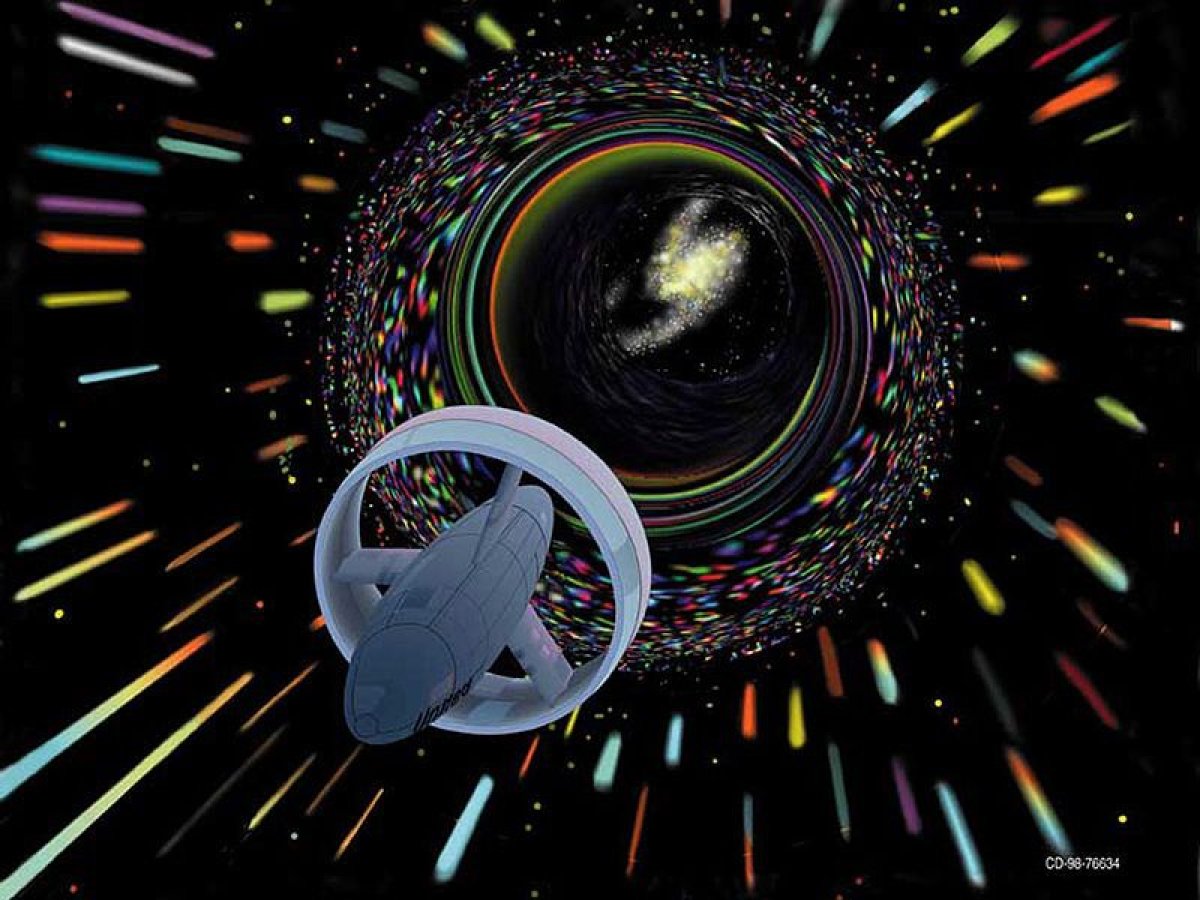
Time travel through a wormhole is technically feasible under the rules of theoretical physics—the only catch is that we can only ever go backward.
In a blog post for Forbes, astrophysicist Ethan Siegel has explained just how—within the realms of Einstein's General Relativity—a person could travel through a wormhole and go back in time.
He said that we first need to consider the wormhole—a portal through space created by energy fluctuations in positive and negative directions. The different fluctuations would each create a curved space that opposes the other. If these two were then connected, you would have a wormhole. If it lasted long enough, theoretically a particle could be transported through.
However, scaling this up so a human could pass through would be more difficult. First, it would involve the discovery of particles with a negative mass and energy. Once we had this, then we would need to create a supermassive black hole and negative mass/energy counterpart. This, he says, "should allow for a traversable wormhole."
Once you have a wormhole, you then need the laws of special relativity to deal with the time aspect.
"If you travel close to the speed of light, you experience a phenomenon known as time dilation," Siegel writes. "Your motion through space and your motion through time are related by the speed of light: The greater your motion through space, the less your motion through time."
If you were traveling somewhere 40 light years away at almost the speed of light, when you returned to Earth more than 80 years would have passed. This is because time travels forward—but how much depends on how fast you are moving through space.
With a wormhole, this changes. "[Imagine] one end of the wormhole remains close to motionless, such as remaining close to Earth, while the other one goes off on a relativistic journey close to the speed of light. You then enter the rapidly moving end of the wormhole after it's been in motion for perhaps a year. What happens?
"Well, a year isn't the same for everyone, particularly if they're moving through time and space differently! If we talk about the same speeds as we did earlier, the "in motion" end of the wormhole would have aged 40 years, but the "at rest" end would only have aged by one year. Step into the relativistic end of the wormhole, and you arrive back on Earth only one year after the wormhole was created, while you yourself may have had 40 years of time to pass."

This means that technically, if someone had created such a wormhole 40 years ago, it would be possible to travel back in time to the 1970s. This method of time travel also excludes the possibility of the grandfather paradox—where a time traveler could go back in time and kill their grandfather therefore preventing their existence.
"Even if the wormhole were created before your parents were conceived, there's no way for you to exist at the other end of the wormhole early enough to go back and find your grandfather prior to that critical moment."
Concluding, he adds: "A great many unusual things become possible in the Universe if negative mass/energy is real, abundant, and controllable, but traveling backwards in time might be the wildest one we've ever imagined."
Uncommon Knowledge
Newsweek is committed to challenging conventional wisdom and finding connections in the search for common ground.
Newsweek is committed to challenging conventional wisdom and finding connections in the search for common ground.
About the writer
Hannah Osborne is Nesweek's Science Editor, based in London, UK. Hannah joined Newsweek in 2017 from IBTimes UK. She is ... Read more
To read how Newsweek uses AI as a newsroom tool, Click here.








